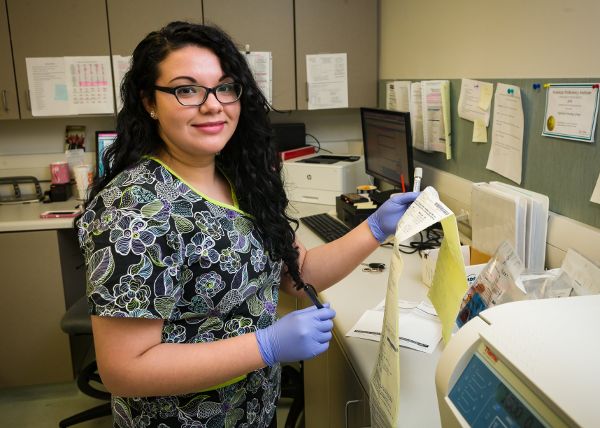Overview
Kidney cancer begins when cells in the kidney start to grow uncontrollably. A tumor can form when more cancer cells develop, and it can spread to other areas of the body. As it grows and spreads, the cancer becomes more advanced.
The kidneys are a pair of organs at the back of the abdomen on either side of the spine which filter the blood to remove waste and excess water and salt. These filtered waste products form urine and pass through the ureters to the urinary bladder. The kidneys also manufacture hormones which regulate blood pressure and red blood cell formation, and they are connected to the adrenal glands which create adrenaline, cortisol, and other substances which regulate body function.
Types of kidney cancer include:
- Renal cell carcinoma (About 9 of 10 kidney cancers are of this type)
- Clear cell renal cell carcinoma
- Papillary renal cell carcinoma
- Chromophobe renal cell carcinoma
- Rare renal cell carcinomas: renal cell carcinomas, multilocular cystic renal cell carcinoma, medullary carcinoma, mucinous tubular and spindle cell carcinoma, neuroblastoma-associated renal cell carcinoma
- Unclassified renal cell carcinoma
- Transitional cell carcinoma or urothelial carcinoma
- Wilms tumor or nephroblastoma
- Renal sarcoma
Symptoms
Early kidney cancers may not cause symptoms, but symptoms may include:
- Blood in urine or hematuria
- Lower back pain on one side not caused by injury
- A mass on the lower back or side
- Fatigue
- Loss of appetite
- Unintended weight loss
- Persistent fever not caused by infection
- Anemia or low red blood cell count
It is important to note that the symptoms above can be caused by a number of other non-cancerous causes, but it is important to be checked by a medical professional to improve the chances of effective treatment.
Risk Factors
The risk of developing kidney cancer is increased for those who smoke, and may be further elevated based on how much one smokes. Kidney cancer risk eventually falls back towards the normal/non-smoker level over many years after quitting smoking. Smoking is a factor in many cases of kidney cancer, so avoiding or quitting smoking may be an important way to lower your risk.
Obesity increases the risk of kidney cancer. This effect is thought to be due to hormonal changes which occur in very overweight people and may lead to the development of kidney cancer. Those with high blood pressure are also at increased risk of developing kidney cancer.
Exposure to certain chemicals in the workplace, including cadmium and certain herbicides and solvents, increases the risk of kidney cancer. The medicines phenacetin (no longer available in the US) and diuretics have been linked to higher rates of kidney cancer. In the case of diuretics, it is not known whether the increase is due to the medication itself or the high blood pressure they treat. It is important to follow your doctor’s instructions for the use of diuretics if needed.
Men are about twice as likely as women to develop kidney cancer. Increased smoking rates and increased rates of exposure to carcinogenic chemicals in the workplace may partially explain this difference. African-Americans and Native Americans have a slightly higher risk of kidney cancer than those from other racial/ethnic backgrounds.
Certain conditions can increase the risk of developing kidney cancer (for more detailed information about these conditions and gene mutations, visit the American Cancer Society website):
- Advanced kidney disease, especially requiring dialysis
- Family history of kidney cancer
- High blood pressure
- von Hippel-Lindau disease
- Hereditary papillary renal cell carcinoma
- Hereditary leiomyoma-renal cell carcinoma
- Birt-Hogg-Dube (BHD) syndrome
- Familial renal cancer
- Cowden syndrome
- Tuberous sclerosis
- Hereditary renal oncocytoma
Prevention
While some risk factors, such as gender, hereditary conditions, and race cannot be controlled, there may be some things you can do to lower your risk of kidney cancer:
- Refrain from or stop smoking.
- Maintain a healthy weight with exercise and a healthy diet.
- Treat high blood pressure.
- Avoid exposure to cadmium, organic solvents, and other harmful chemicals at work.
Diagnosis
While some kidney cancers are found after symptoms appear, many people are diagnosed with no symptoms at all. If there is a suspicion of kidney cancer, a detailed medical history and physical exam will be performed. Your doctor will ask questions about your risk factors and family history. The physical exam will include an examination of your abdomen and may include additional lab testing.
Imaging tests, including CT, MRI, Ultrasound, PET, and X-ray (including intravenous pyelogram and angiography) are often used to confirm a diagnosis of kidney cancer, but some cases may require biopsy. Blood tests and urinalysis may be used throughout diagnosis and treatment to assess kidney function and overall health.
Other tests may be used in addition to the diagnostic tools discussed above.
Treatment
The treatment plan will depend on the stage of the cancer, as well as other factors. Our doctors will work closely with you and your family determine the best treatment plan for you. Options for treatment could include:
- Surgery
- Ablation or other local therapy
- Active surveillance
- Radiation therapy
- Targeted therapy
- Immunotherapy
- Chemotherapy
Your doctor may decide more than one of these treatment options will be in your best interest. Surgery is recommended for most cases of kidney cancer.







